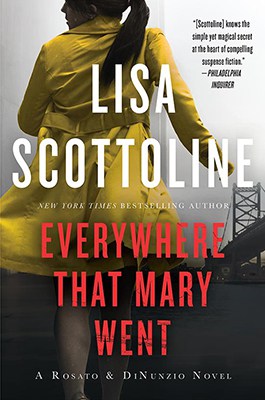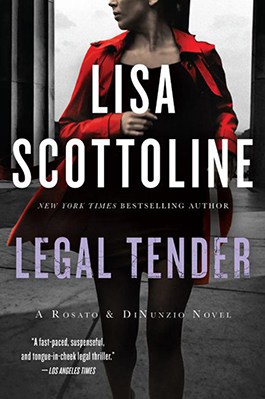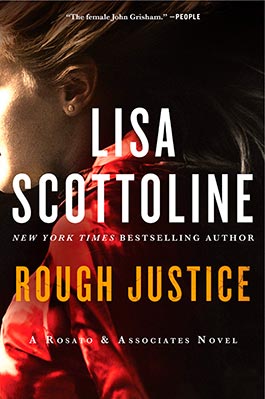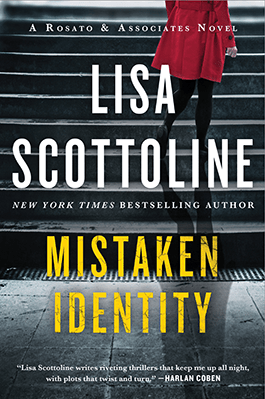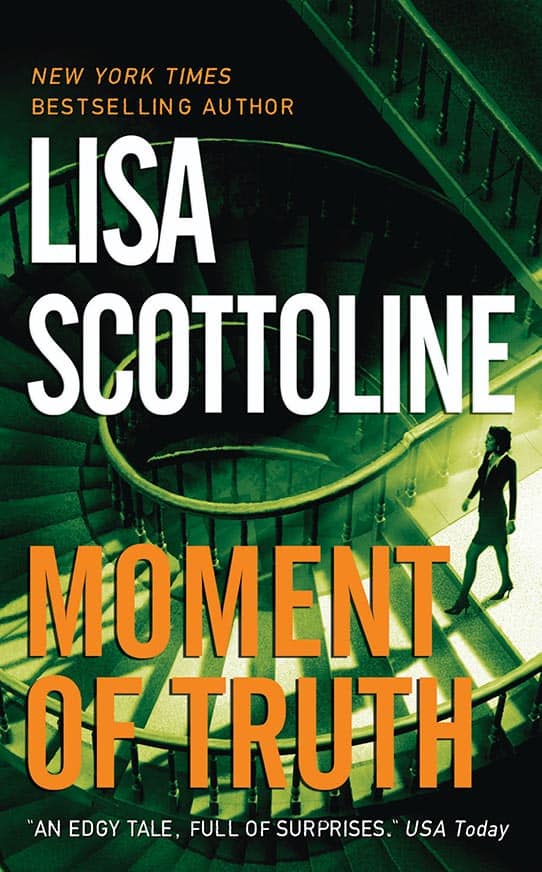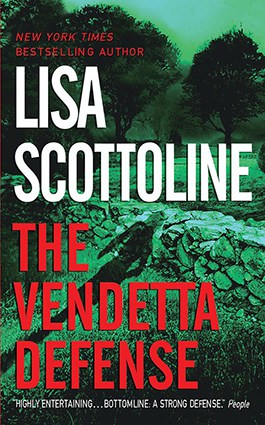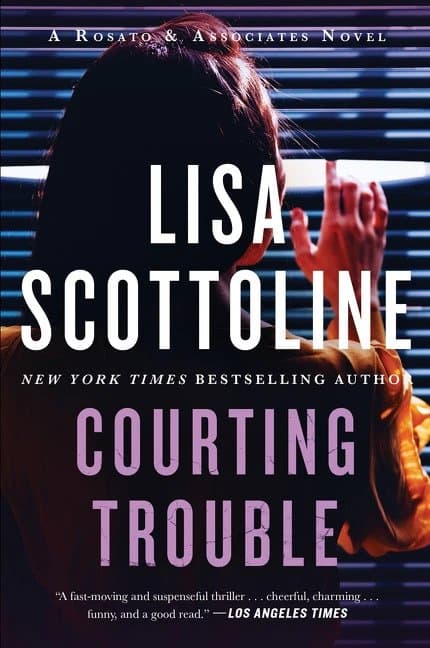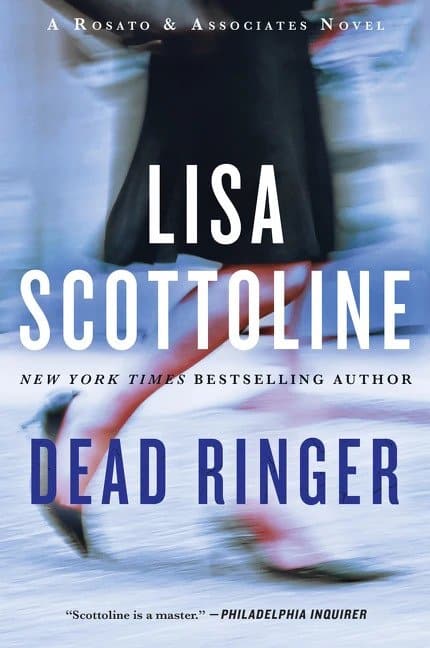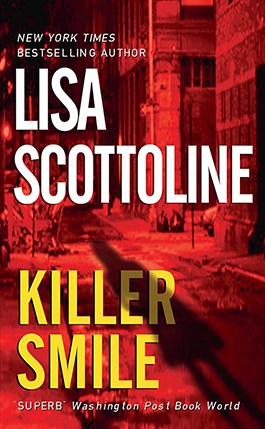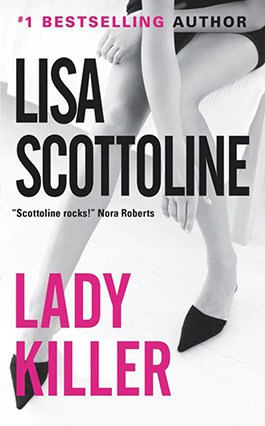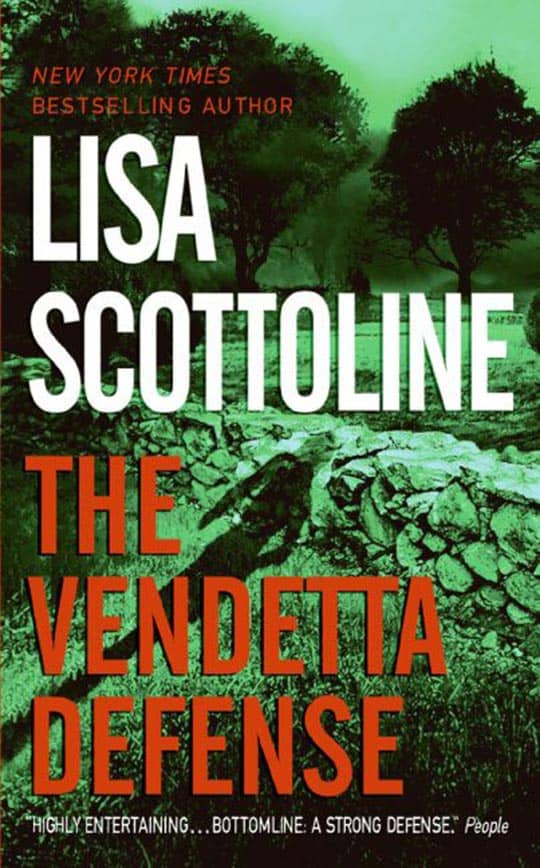
The Vendetta Defense was voted “one of the top ten best mysteries of the year” by the Ft. Lauderdale Sun-Sentinel and People magazine gave it its two-word blessing: — “Strong Defense.” The heart of the tale is a simple idea with complex implications: Anthony Lucia, an old Italian pigeon keeper known to his South Philly neighbors as “Pigeon Tony,” doesn’t try to hide the fact that he killed lifelong enemy Angelo Coluzzi, nor is he sorry that he’s dead. He justifies the killing because he was merely carrying out a vendetta begun more than 50 years ago in Italy, a blood feud that brought great tragedy to Pigeon Tony’s life. But is murder ever justified? That is what ace lawyer, Judy Carrier, an associate of the Philly law firm Rosato & Associates, must decide for herself, before she can launch a defense in what becomes the most challenging case of her career. Challenging, not only because of its legal complexities, but because she must outsmart and outrun the victims sons, dangerous men who are determined to avenge their father’s death, and finish off Pigeon Tony and Judy before the case goes to trial.
“Scottoline shows once again her knack for building a highly entertaining plot around an intriguingly simple legal issue and a cast of likable eccentrics. Her touch is light, and her satisfying mix of mischief, sex appeal, action and legal analysis justifies her wide following.”
– Publishers Weekly
“You’ll lap up Scottoline’s latest.”
– Glamour magazine
“Scottoline also is the funniest of all the lawyer writers.”
– Philadelphia Inquirer
“This is a legal thriller that has a lot of heart, and Lisa Scottoline, who knows her Italians, just keeps getting better with every book. “
– Otto Penzler
The Vendetta Defense
By Lisa Scottoline
CHAPTER 1
The morning Tony Lucia killed Angelo Coluzzi he was late to feed his pigeons. As long as Tony had kept pigeons, which was for almost all of his seventy-nine years, he had never been late to feed them, and they began complaining the moment he opened the screen door. Deserting their perches, cawing and cooing, they flew agitated around the cages, their wings pounding against the chicken wire, setting into motion the air in the tiny city loft. It didn’t help that the morning had dawned clear and that March blew hard outside. The birds itched to fly.
Tony waved his wrinkled hand to settle them, but his heart wasn’t in it. They had a right to their bad manners, and he was a tolerant man. It was okay with him if the birds did only one thing, which was to fly home. They were homers, thirty-seven of them, and it wasn’t an easy job they had, to travel to a place they’d never been, a distance in some races of 300 or 400 miles, then to navigate their return through skies they’d never flown, over city and country they’d never seen and couldn’t possibly know, to flap their way home to a tiny speck in the middle of South Philadelphia, all without even stopping to congratulate themselves for this incredible feat, a feat that man couldn’t even explain, much less accomplish.
There were so many mistakes a bird could make. Circling too long as if it were a joyride or a training toss. Getting distracted on the way, buffeted by sudden bad weather, or worse, simply getting tired and disoriented; thousands of things could result in the loss of a precious bird. Even once the first bird had made it home, the race wasn’t won. Many races had been lost by the bird who wouldn’t trap fast enough; the one who was first to reach his loft, but who stopped on the roof, dawdling on his way to the trap, so that his leg band couldn’t be slipped off and clocked in before another man’s bird.
But Tony’s birds trapped fast. He bred them for speed, intelligence, and bravery, through six and even seven generations, and over time the birds had become his life. It wasn’t a life for the impatient. It took years, even decades, for Tony to see the results of his breeding choices, and it wasn’t until recently that his South Philly loft had attained the best record in his pigeon racing club.
Suddenly the screen door banged open, blown by a gust of wind, startling Tony and frightening the birds in the first large cage. They took panicky wing, seventeen of them, all white as Communion wafers, transforming their cage into a snowy blizzard of whirring and beating, squawking and calling. Pinfeathers flurried and snagged on the chicken wire. Tony hurried to the loft door, silently reprimanding himself for being so careless. Normally he would have latched the screen behind him — the old door had bowed in the middle, warped with the rain, and wouldn’t stay shut without the latch — but this morning, Tony’s mind had been on Angelo Coluzzi.
The white pigeons finally took their perches, which were small plywood boxes lining the walls, but in their panic had displaced each other, violating customary territories and upsetting altogether the pecking order, which led to a final round of fussing. “Mi dispiace,” Tony whispered to the white birds. I’m sorry, in Italian. Though Tony understood English, he preferred Italian. As did his birds, to his mind.
He gazed at the white pigeons, really doves, which he found so beautiful. Large and healthy, the hue of their feathers so pure Tony marveled that only God could make this color. Their pearliness contrasted with the inky roundness of their eye, which looked black but in fact was the deepest of reds, blood-rich. Tony even liked their funny bird-feet, with the flaky red scales, and the toe in back with a talon as black as their eyes pretended to be. And he kidded himself into thinking that the doves behaved better than the other birds. More civilized, they seemed aware of how special they were.
The secret reason for the doves’ special status was that they were beloved of his son, who had finally stopped Tony from releasing them at weddings for a hundred-fifty dollars a pop. Tony had thought it made a good side business; why not make some money to pay for the seed and medicines, plus keep the birds in shape during the off-season? And it made Tony happy to see the brides, whose hearts lifted at the flock of doves taking off outside the church, since you couldn’t throw rice anymore. It reminded his heart of his own wedding day, less grand than theirs, but such things didn’t matter when it came to love.
But his son had hated the whole idea. They’re not trained monkeys, Frank had said. They’re athletes.
So Tony had relented. Mi dispiace, he whispered again, this time to his son. But Tony couldn’t think about Frank now. It would hurt too much and he had birds to feed.
He shuffled down the skinny aisle, and his old sneakers, their soles worn flat, made a swishing sound on the whitewash of the plywood floor. The floor had held up okay, unlike the screen door; Tony had built the loft himself when he first came to America from Abruzzo, sixty years ago. The loft measured thirty feet long, with the single door in the middle opening onto a skinny aisle that ran the short length of the building. It occupied all of Tony’s backyard, as if the loft and yard were nesting boxes. Off the aisle of the loft were three large chicken-wire cages lined with box perches. The aisle ended in a crammed feed room, the seed kept safe from rats in a trash can, and there was a bookshelf holding antibiotics, lice sprays, vitamins, and other supplies, all labels-out, in clean white shelves.
Tony prided himself on the neatness of his loft. He dusted the sills, cleaned the windows with the bright blue Windex, and scraped the floor of the cages twice a day, not once. It was important to the health of his birds. He whitewashed the loft interior each spring, before the old bird season; he had done it last week, experiencing a familiar pang; the chalky smell of the whitewash and its brightness reminded him of the white liquid shoe polish he used to paint over the scuffs on Frank’s baby shoes, when his son had started to walk. Tony remembered the shoe polish — they didn’t make it anymore — he would paint it on the hard baby shoes with the puffy ball they gave you, stuck on a stick inside the cap like a ball of dandelion seeds. Even though it dripped it worked okay.
Tony shook his head, thinking of it now, the chalky smell filling his nose like the fragrance of a rose. The bottle of polish had a blue paper label and a little circle picture of a blond-haired, blue-eyed baby who didn’t look anything like baby Frank, with his jet black curls and his big brown eyes. Somehow Tony had the idea that if he painted the watery polish on Frank’s baby shoes, his son would look like all the American babies, and one day come to be one, even though Frank had black hair and no mother. And when it actually happened and Frank grew up to take his place in this country, Tony was just superstitious enough to think that maybe it was the shoe polish.
Tony had to stop thinking about his son, though he couldn’t help it, not this morning, of all mornings, and he tried to concentrate on the first cage of doves, appraising with failing eyes their condition. The doves were settling down, roosting again, and they looked good, no big fights during the night. Tony worried about the fights; the birds were territorial and always bickering about something, and the white birds bruised easily. He wanted them to look especially nice and stay healthy. For Frank.
Tony shuffled down the aisle to the second and third cages, which held the multi-colored birds, mostly Meulemans with their reddish-brown feathers, and Janssens. There were other breeds in shades of gray, brown, and the common slateys, a slate gray; their eyes generally the same dark brown. Tony liked the non-white breeds, too, the ordinariness of their plumage reminding him of himself; he wasn’t flashy man, not a braggadocio. He didn’t have the strut that some men had, going about like cocks. It had been his ruin, but now that he was old, it didn’t matter anymore. It stopped mattering a long time ago. Sixty years, to be exact.
His thoughts elsewhere, Tony watched the Janssens cooing and stirring without really seeing them. The breed name came from the Janssen family who had bred them, and the other names from the other families who had bred them; Tony had always dreamed that his family would produce its own strain of birds, but he wouldn’t name it after himself. He knew who he would name it after, but he didn’t get the chance. Many of the best breed stock came from Belgium and France. Italian pigeons also made good racers, but Tony wouldn’t have much to do with them, especially the so-called Mussolini birds. Anybody who lived during Mussolini wouldn’t want anything to do with a Mussolini bird. Chi a poca vergogna, tutto il mondo e suo. He who is without shame, all the world is his. Mussolini birds!
Tony was an old man with old memories. He wanted to spit on the loft floor, but he didn’t want to dirty it. Instead he stood trembling until the anger left him, except for the bitterness in his mouth. Shaken, he idly inspected the Meulemans, and they seemed fine, too. Only Tony had had the terrible morning. An awful morning; the worst he’d had in a long time, but not the worst he’d had in his life. The worst he’d had in his life was sixty years ago. That morning, then, and this morning, now. Today. Tony had thought he would feel better after, but he didn’t. He felt worse; he had committed an act against God. He knew his judgment would come in heaven and he did not fear it.
His thoughts were interrupted by the Meulemans, cooing loudly, wanting to be fed, and his dark eyes went, as always, to his favorite bird of all, a Meuleman he had named The Old Man. The Old Man and Tony went back eighteen years; The Old Man was the oldest of Tony’s pigeons, and to look at him, Tony wasn’t sure who was the Old Man, him or the bird. The Old Man roosted peacefully in his corner perch in the second cage, his strong head held characteristically erect, his eyes clear and alert, and his broad breast a still robust curve covering his feet. Tony remembered the day the chick hatched, an otherwise typical slatey, apparently unremarkable at birth except for his eye sign. Eye sign, or the look in a pigeon’s eye, spoke to Tony, and The Old Man’s eyes told Tony that the bird would be fast and smart. And he had been the best, in his day.
“Come sta?” Tony asked the Old Man, How are you, but the Old Man knew exactly what he meant, and it wasn’t how are you.
The Old Man regarded the old man for a long time then. Tony couldn’t help but feel that the old bird knew what he had done that morning, what had been so important as to keep Tony from feeding his birds on time. The Old Man knew why Tony had to do what he had done, even after all this time. And Tony knew that The Old Man approved. It was then that Tony heard cars pulling up outside his house and in the alley right behind the loft, on the other side of the cinderblock wall. There was the slamming of heavy car doors, and Tony knew that they were police cars.
He had been expecting them.
But the birds startled at the sudden sound, taking flight in their cages, and even though Tony knew the police were coming, he felt the hair rise on the back of his neck, as it used to so long ago. He froze beside the cages as the police shouted English words he didn’t bother to translate, though he could, then they broke down the old wood door in the backyard wall, one, two, three pushes and it splintered and gave way to their shoulders and they burst into his yard, trampling his basil and tomatoes.
They were coming for him.
Tony didn’t run, he wouldn’t have anyway, but he remembered he had yet to feed his birds. He would have to hurry to finish before the police took him away. He shuffled to the feed room even as he caught sight of the police drawing their black guns silently, pointing instructions to each other, and two of them sneaking to the back door of his house like the cowards they were, little men hiding behind black shirts and shiny badges.
Tony’s gut churned with bile, and it struck him with astonishment that the deepest hate could rage like a fire for so many years, never burning itself up.
Dwelling with perfect comfort alongside the deepest love.
©2009 by Lisa Scottoline. All rights reserved.
The Vendetta Defense
Questions for Book Clubs
- What is up with the pigeons? What kind of new kick is Lisa on? Why does she tells us so damn much about pigeons? Will she ever shut about pigeons? Does this matter to plot or character at all? Hint: Lisa is far smarter than she looks. Or acts.
- Should this book start on Chapter Two? Would we like it better? No hints. I really want to know what you think. Email me and sound off.
- Was Pigeon Tony right to do what he did? Would you have? Do you understand? Do you love/ hate the flashbacks?
- Why is Judy the star of this book? Is she good/bad/better/worse than other Scottoline heroines? Do you like her? Does it matter if you do?
- What about the Tonys? Are they in there for purpose or just wacky? What could possibly be the purpose? Should Judy trespass in the junkyard? Can you spell sfogatelle?
- How hunky is Frank? Does someone named Frank automatically come out hunky or is just me? Is it relevant that Frank is my father’s name? Or is this just plain sick?
- Are the Coluzzi’s, the Tonys, Frank and Pigeon Tony Italian stereotypes? Does it matter? Why? Does the Italian-ness of these characters matter, or is Lisa just trying to make a point about identity to further characterize her already sensational characterizations?
- Like the courtroom scenes or are you bored? Agree with the verdict or not? How would you have voted if you were on the jury?
- How many Scottoline characters are owned by golden retrievers?

